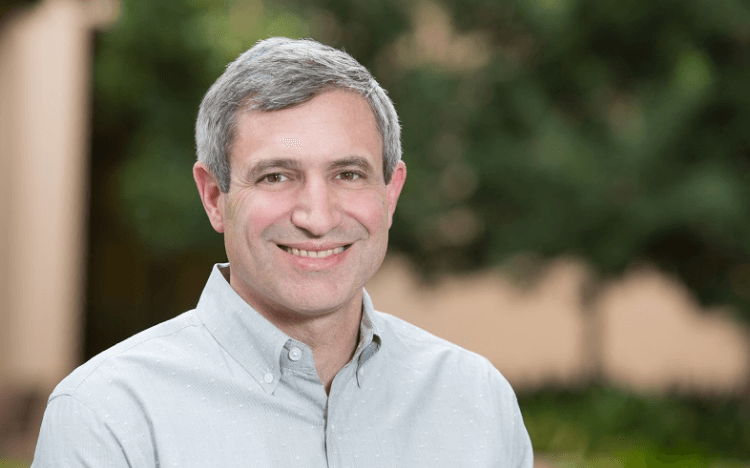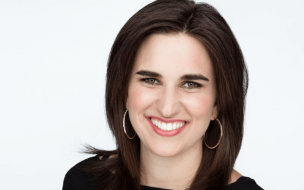The senior associate dean for academic affairs might have been at the school for 21 years, but he’s spent that time putting in place the tools for his students to thrive today and beyond.
Yossi’s students are the source of his optimism. He sees them streaming in and out of the café; he sees the energy and excitement they have to make the world a better place.
“It’s just a place that constantly changes and evolves,” he says.
But what do you need to know if you want to join them; if you want to ace your Stanford MBA application? It requires more than a will to change lives, change organizations, and change the world, as the GSB motto reads.
A lot of scratching, a lot of backs
You scratch my back, I’ll scratch yours could be the mantra applied to the community at Stanford GSB.
It’s not just about the individual’s experience, it’s about the group, explains Yossi.
“We want each person here not only to grow and succeed, but also to contribute to the growth and success of everyone else.”
Like every community, you give as well as receive, he adds. That’s something you need to acknowledge if you want to apply.
Yossi says a lot of MBA applicants question whether they are the right fit for this particular culture.
“The strength of this culture is that not everybody comes in as a fit, it’s the other way around.”
No matter who you come in as, the immersion in the community and the attitude of Silicon Valley has the power to transform you as an individual, he explains.
"It's just a place that constantly changes and evolves."
He remembers a student from a few years ago who was sceptical about the MBA experience. She was unsure whether it was for her, whether she’d made the right choice.
She told Yossi, though, that she’d yet to have a boring conversation, and by the time he caught up with her again in the Spring she was over the moon, he says.
She said it was the most impactful experience she had in her life. She knew there was something missing from her personal development and career, she just couldn’t put her finger on it before.
“These are the people who really flourish at the GSB,” Yossi explains, “those who are extremely talented, but are also open to new ideas and possibilities.”
What skills will you need?
Strong values and passion have always been part of the requirement for Stanford MBAs, says Yossi.
Now, though, he says it’s essential you bring an open mind and patience.
“That’s something that I think leaders need today more than ever. As things become more sound bite and less deep, leaders need to compensate by being more patient, more thoughtful, and better listeners—that starts with conversations in the classroom.”
“At the high end you will need more people who can handle much more complex situations in fast changing environments.”
Soft skills alone won’t cut the mustard. Soft skills are stronger, Yossi says, when they are built on a “deep, authentic” understanding of the business industry and environment in which you work.
On the Stanford MBA you have the capability to build a deep understanding of your favored subject area through numerable electives, Yossi says, which can then be complemented by soft skills developed through courses like Interpersonal Dynamics.
As an MBA student you can take classes from across Stanford University in your second year—in computer science, manufacturing, or energy, for example.
So, an autonomous vehicle enthusiast could develop their management competency and soft skills alongside modules on artificial intelligence, the manufacturing of self-driving cars, and industry regulation.
“For the best soft skills, it’s almost a necessary condition for you to immerse yourself in the field to become a leader. Immersing in the field builds a strong foundation,” Yossi explains.
What does Yossi think about the future of the MBA?
The modern MBA has to reflect the pace of change within companies, he thinks, by incorporating real-time learning for MBA students in collaboration with global corporations, startups, and SMEs.
Stanford’s curriculum, he adds, is constantly evolving to reflect this.
In the future he believes the MBA will play even more of a central role in the creation of business leaders.
Though he adds that the trend of the traditional MBA as a milestone in a career path is decreasing, there is a strong need for people who can manage highly dynamic, changing environments and industries—that will only go up, he says.
“At the high end you will need more people who can handle much more complex situations in fast changing environments—people who have a deep empathy and human connection but who also understand the technology and the cutting edge of where we are.”







